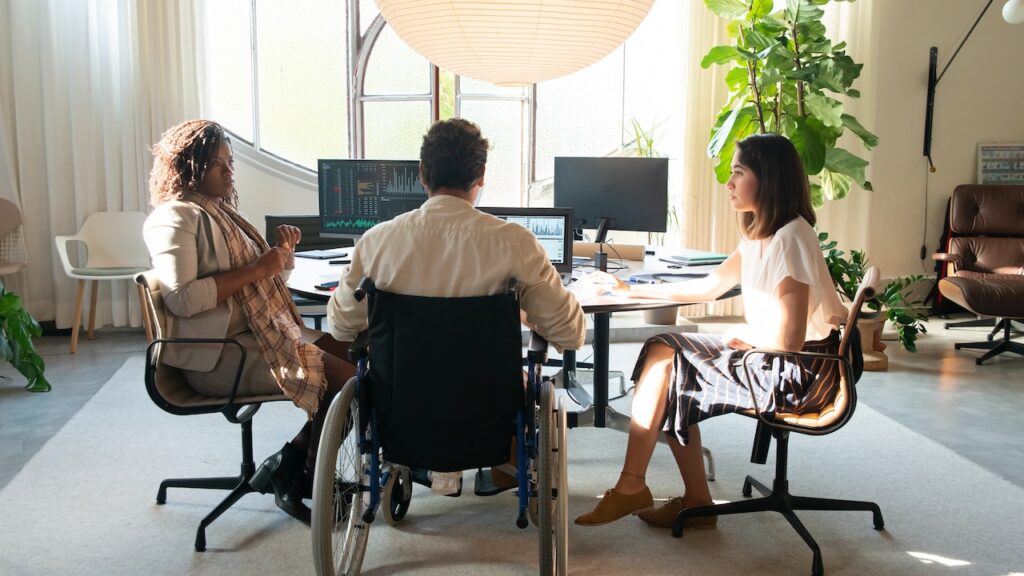Elevating the GNYPWD – The Path Forward

Since its launch in 2020, GNYPWD has been able to reach an increasing number of young people across the world, advancing its efforts of spearheading meaningful inclusion. Over the coming years, it aims to establish itself as an even stronger champion in the field of inclusion of persons with disabilities, to support young leaders with concerted advocacy efforts to ensure that decision-makers look at all youth relevant agendas with a disability-inclusive lens. For this to become a reality, the GNYPWD needs to surpass a crucial phase in its organizational development to truly become a leading network that empowers youth with disabilities to hold leadership positions at the local, national, and international levels. Therefore, at the present junction, the GNYPWD is focusing on upscaling and professionalizing its efforts in order to accelerate efforts for rights-based and inclusive development and reach more young people living with disabilities, as well as relevant international stakeholders in the long run. A highlight of the progress made in 2022, on which the current proposal would build on, includes the launch of an accessible online platform aimed to bring together youth with disabilities across the globe in a central hub that also links them to opportunities from the UN and its partners.

To truly lead for substantive change, the GNYPWD has identified a need to strengthen its institutional capacity and to create advanced working mechanisms to upscale its impact in the lives of young persons with disabilities around the globe. The organization aims to move away from its volunteer-run model, towards a more sustainable approach where it has the capacity to ideate, trial, maintain, and lead youth and disability-responsive support activities as well as trainings in both digital and offline spaces. To reach these objectives GNYPWD and UNITAR propose two years of activities to strengthen the institutional frameworks and capacity of the GNYPWD on the one hand, and to pilot a set of activities to inform a future full-on launch of the network’s presence in digital spaces, and beyond, on the other. Expected activities to reach set goals include:
- A substantial mapping and consultations with the networks’ members and external stakeholders of the needs, opportunities, and risks surrounding the GNYPWD’s capacity to lead. These activities will be essential to setting the direction of the offline and online community and to defining even more clearly the vision, mission, and roads towards the success of the GNYPWD;
- Developing and implementing capacity-building activities based on the needs identified in the mapping to enable both the GNYPWD secretariat and its broader membership base to help youth with disabilities reach their fuller potential;
- Expanding the tools and reach of the GNYPWD’s flagship digital platform. A platform that will in the long run, allow young people with disabilities to better connect, communicate, and collaborate with each other, access targeted support and resources, as well as to find opportunities from the UN and other partners that allow for the meaningful participation of young persons with disabilities that can shift the current landscape towards a more accessible, just, and inclusive world.
In effect, the project presents a concrete opportunity to take tangible action in elevating the voices of young persons with disabilities at all levels, by contributing to the establishment of the GNYPWD at a global scale. With the above steps the organisation will create accessible and safe spaces for groups of youth with disabilities that is sensitive to intersectional needs, and for the disability community at large, by facilitating connection, communication, and collaboration among young people with disabilities, and to make way for a community that is inclusive and welcoming for these groups.

Ultimately, the presented solutions have the potential to go beyond the impact for the disability space, where it will promote greater independence and self-sufficiency among youth with disabilities, enabling individuals as well as groups to on their own lead fulfilling lives and make meaningful contributions to their communities, countries, and regions. By providing individuals and intersectionally marginalized groups with the necessary tools to thrive through their unique skillsets and perspectives, the initiative will contribute to reducing international expenses related to, amongst other factors, the care of youth with disabilities through enabling active membership in society. In addition to the rights-based perspective, the potential return on investment will thus furthermore be significant, extending beyond the employment of young people to benefit individual communities, countries, and all regions of the world.
